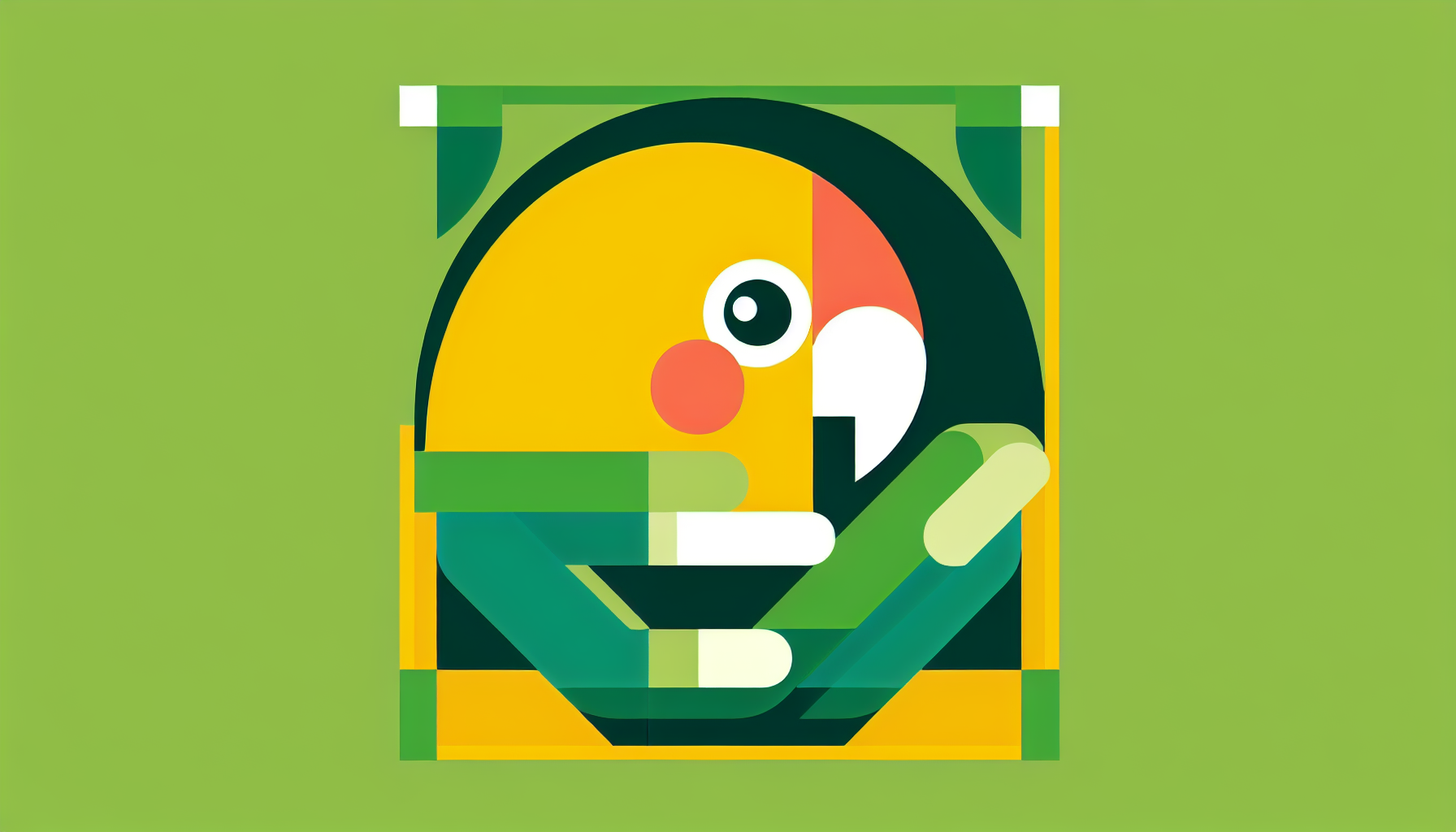Table of Contents
Yellow Naped Parrot Care
How Long Do Parrots Live?
Yellow-naped Amazon parrots are like the Methuselahs of the bird world. With the right care, these feathered pals can stick around for up to 60 years; some have even hit the 90-year mark! That’s a lot of birthdays to celebrate together.
To keep your parrot chirping happily for decades, focus on these three essentials:
- Good Food: Think fruits, veggies, and top-notch pellets.
- Exercise: Keep them moving to dodge the dreaded birdie bulge.
- Playtime: Toys and interaction to keep their brains buzzing.
The Perfect Parrot Pad
Your yellow-naped Amazon parrot needs a comfy crib. The cage should be roomy enough for flapping and playing. Here’s what you need:
| Cage Feature | Specification |
|---|---|
| Width | At least 36 inches |
| Depth | At least 24 inches |
| Height | At least 36 inches |
| Bar Spacing | No more than 1 inch apart |
These dimensions give your parrot space to stretch and stay safe. The bar spacing keeps them from getting stuck or hurt.
Don’t forget these extras:
- Perches: Mix up sizes and textures to keep their feet happy.
- Toys: A variety of toys to keep them entertained.
- Food and Water Dishes: Easy to reach and clean.
For more on setting up the perfect cage, check out our parrot care guide.
By knowing how long your parrot can live and what kind of home they need, you can keep them healthy and content. For more tips, dive into our articles on parrot feather care and parrot beak care.
Nutrition Essentials
Keeping our yellow-naped parrot healthy starts with the right food. Let’s break down what they need to stay in tip-top shape and avoid gaining pounds.
What’s on the Menu?
A balanced diet for our yellow-naped Amazon includes a mix of parrot pellets and fresh fruits. According to Mom.com, aim for 50% parrot pellets and 50% fresh fruits to keep them in prime condition.
Parrot Pellets
These little nuggets are packed with the good stuff—vitamins, minerals, and proteins. They should be the main part of our parrot’s diet.
Fresh Fruits and Veggies
Fresh fruits and veggies are like nature’s vitamins. Offer them daily in the right amounts. Here are some good picks:
- Fruits: Apples, bananas, berries, melons
- Veggies: Carrots, bell peppers, broccoli, leafy greens
Seeds and Nuts
Seeds are tasty but should be just a small treat. Too many can mess up their nutrition. Nuts are the same—limit to a couple of tree-based nuts (like almonds, Brazil nuts, or walnuts) each day (VCA Hospitals).
| Food Type | Proportion |
|---|---|
| Parrot Pellets | 50% |
| Fresh Fruits & Veggies | 50% |
| Seeds | Minimal |
| Nuts | 2-3 Daily |
For more tips on parrot care, check out our parrot care guide.
Keeping the Pounds Off
Yellow-naped Amazon parrots can get chunky, which isn’t good for their health. Here’s how to keep them fit.
Watch the Portions
Overfeeding can lead to fatty tumors and a shorter life. Keep an eye on portion sizes and stick to a balanced diet to avoid these issues.
Skip the Junk Food
High-fat and sugary foods are a no-go. This includes too many seeds and human snacks like chips, candy, and fatty meats. Stick to healthy options that meet their nutritional needs.
Get Moving
Exercise is key. Provide toys, perches, and safe spaces for flying to keep our parrot active and healthy.
For more health tips, visit our parrot care 101 article.
By following these tips, we can keep our yellow-naped parrot happy and healthy with a balanced diet and plenty of activity. For more on parrot care, check out our articles on parrot beak care and parrot feather care.
Keep Your Yellow-Naped Amazon Parrot Happy and Healthy
Yellow-naped Amazon parrots are smart and social birds that need daily mental and physical activities to stay happy. Giving them enough interaction and fun things to do is key to their well-being.
Daily Hangout Time
These parrots love to chat and play. Spend at least two hours a day with them outside their cage (Mom.com). Use this time for exploring, playing with toys, and having conversations. They’re great talkers and can even understand some of what you say.
Try these activities with your parrot:
- Chatting and singing
- Playing with fun toys
- Teaching new tricks
Mix up their toys and puzzles to keep things interesting. Changing toys often can help prevent boredom.
Bath Time Fun
Bathing is super important for keeping your parrot’s feathers and skin healthy. Regular baths help keep their feathers in great shape and avoid skin problems.
Here’s how to bathe your parrot:
- Use lukewarm water
- Gently mist their feathers with a spray bottle
- Let them air dry in a warm, draft-free spot
Also, be careful when clipping their wing feathers to avoid injuries. Knowing how to bathe and groom your parrot properly will keep them healthy and happy.
For more tips on parrot care, check out our articles on parrot care 101, parrot feather care, and macaw parrot care.
Health and Wellness
Common Health Concerns
Taking care of our yellow-naped parrots means keeping an eye out for common health issues. Knowing what to look for helps us keep our feathered pals in tip-top shape.
Hypocalcaemia: This fancy word just means your parrot isn’t getting enough calcium. It can cause problems like egg-binding, soft eggs, and infertility. Make sure they get a balanced diet and a mineral block to munch on (Omlet).
Obesity: Too many fats and sugars can make your parrot chubby, leading to health problems. Feed them right and watch for any weird eating habits to nip this in the bud.
Psittacosis: This nasty disease, caused by Chlamydophia psittaci bacteria, can spread like wildfire in an aviary. Keep things clean and disinfected, and quarantine new birds for at least 45 days to keep it at bay.
Vitamin A Deficiency: Amazon parrots, including our yellow-naped friends, can lack vitamin A if they eat mostly seeds. A balanced diet is key to preventing this.
Preventive Care Measures
Keeping our yellow-naped parrots healthy and lively means taking some preventive steps. Here’s what you need to do:
Balanced Diet: A good diet is crucial. Seeds should be just a small part of it. Add fresh fruits, veggies, and specially formulated pellets. A couple of tree nuts (like almonds or Brazil nuts) daily can provide essential nutrients (VCA Hospitals).
Calcium and Mineral Supplements: Give your parrots access to a mineral block or cuttlebone to prevent calcium deficiencies. This is super important for egg-laying females to avoid egg-binding issues (Omlet).
Regular Vet Visits: Regular check-ups with an avian vet can catch potential health issues early. These visits can include blood tests, fecal exams, and general health checks.
Clean Environment: Keep the cage and living area clean to prevent diseases like Psittacosis. Regularly clean and disinfect the cage, perches, and toys to keep harmful bacteria away.
Quarantine New Birds: Quarantine new birds for at least 45 days when they are brought into the aviary. This helps prevent the spread of infectious diseases to your existing flock (Omlet).
Behavior Monitoring: Keep an eye on your parrot’s behavior. Changes in eating habits, vocalization, or activity levels can be early signs of health issues and should be checked out promptly.
For more detailed info on parrot care, check out our guide on parrot care, and for dietary advice, see our section on balanced diet components. Keeping our yellow-naped parrots healthy and happy takes attentive care and a proactive approach to their wellness.

